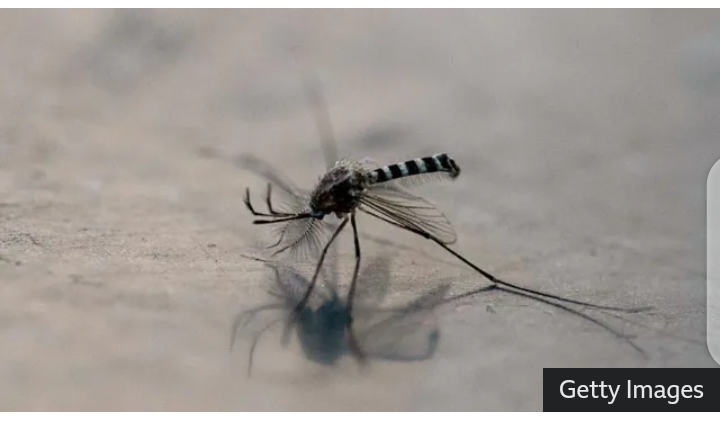Philippine Town Offers Cash Bounty For Mosquitoes Amid Dengue Surge.
Authorities in one of the Philippines’ most densely populated urban centres have introduced an unusual measure to combat a rising dengue outbreak—offering a cash reward for captured mosquitoes.
Carlito Cernal, village chief of Barangay Addition Hills in central Manila, has announced a bounty of one peso (less than two US cents) for every five mosquitoes. The initiative, aimed at supplementing existing anti-dengue efforts, has sparked mixed reactions, with some ridiculing the scheme on social media. However, Mr Cernal insists that drastic action is necessary for the well-being of the community.

The programme was launched in response to a spike in dengue cases, which recently led to the deaths of two students in the area. It will run for at least a month, covering all mosquitoes—dead or alive—as well as their larvae. Live mosquitoes will be exterminated using ultraviolet light.
Despite initial scepticism, 21 people have already participated, collectively turning in 700 mosquitoes and larvae in exchange for rewards, Mr Cernal told the BBC.
Mixed Reactions and Government Response
The announcement of the bounty on Tuesday quickly drew online ridicule, with some social media users joking about potential “mosquito farming” and questioning the feasibility of the scheme.
The Philippines’ Department of Health (DOH) acknowledged the local government’s good intentions but refrained from commenting on whether the initiative would be effective in combating dengue. Instead, the department encouraged communities to follow proven, evidence-based strategies and coordinate with local health officials.
Mr Cernal, however, remains steadfast in his decision, noting that Barangay Addition Hills—a densely populated area of nearly 70,000 residents within Metro Manila—has seen 44 reported dengue cases in the latest surge. He emphasised that the bounty is meant to complement existing measures, such as street cleaning and the elimination of stagnant water, where dengue-carrying mosquitoes breed.
Dengue Cases on the Rise
Dengue, a mosquito-borne disease endemic to tropical regions, thrives in urban areas with poor sanitation. In severe cases, it can cause internal bleeding and death, with symptoms including headaches, nausea, and muscle pain.
Philippine health authorities recently reported a worrying nationwide rise in dengue infections, with 28,234 cases recorded as of 1 February—a 40% increase compared to the previous year. Officials have attributed the surge to seasonal rains, which create ideal breeding conditions for mosquitoes.
The DOH continues to urge the public to maintain cleanliness, destroy potential mosquito breeding grounds, wear protective clothing, and use mosquito repellent. In addition to dengue, health officials warn that heavy rains have also led to spikes in influenza-like illnesses and leptospirosis, a bacterial disease transmitted through floodwaters contaminated by rat urine.
While the mosquito bounty initiative has raised eyebrows, local authorities remain hopeful that it will contribute to their broader efforts to curb the spread of dengue and protect the community.


